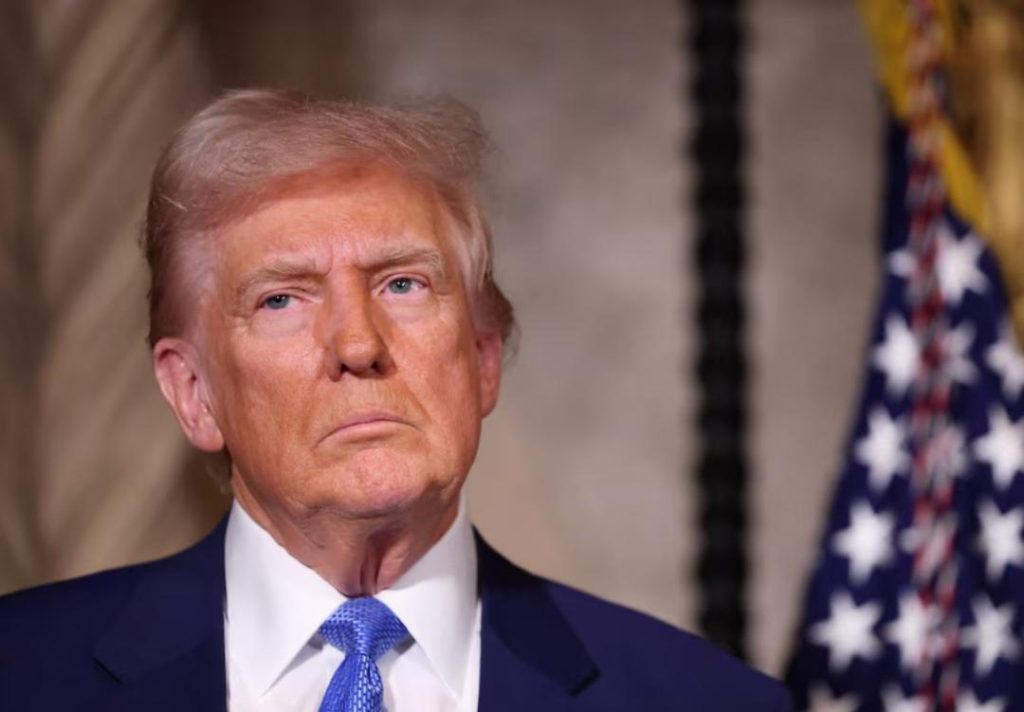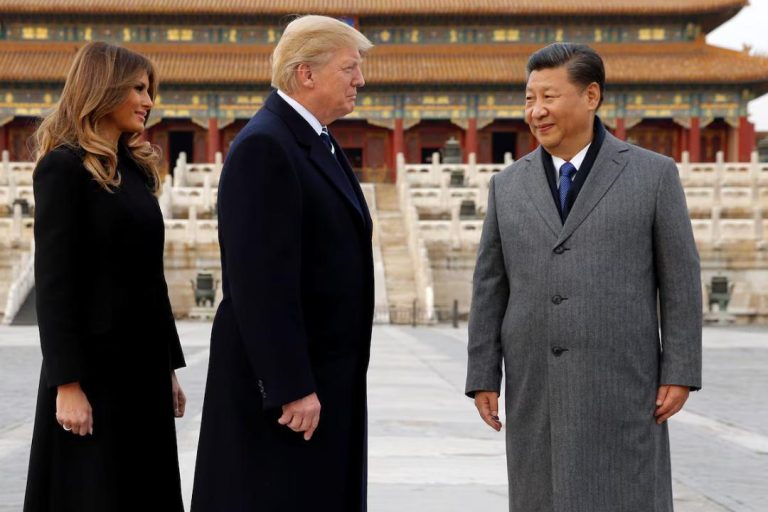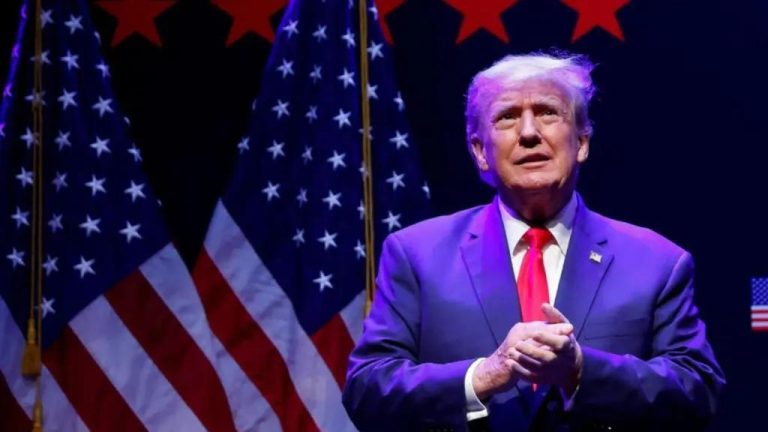
Trump’s Approval Rating Drops as Americans Worry About Economy
As the United States continues to navigate the challenges of the modern economy, President Donald Trump’s approval rating has taken a hit. According to a recent poll conducted by Reuters and Ipsos, Trump’s approval rating has dropped to 44%, down from 47% in January. This decline is largely attributed to growing concerns among Americans about the economy, which has been a central focus of Trump’s presidency.
The poll, which surveyed over 1,000 adults in the United States, found that only 32% of Americans approve of Trump’s handling of inflation. This is a significant concern, as inflation has been rising steadily over the past year, with the Consumer Price Index (CPI) reaching its highest level in over three years in January. As the cost of living continues to increase, Americans are becoming increasingly anxious about their financial security, and it appears that Trump is shouldering some of the blame.
Despite the decline in his overall approval rating, Trump still maintains a strong approval rating on certain issues. In fact, 47% of Americans support his stance on deporting illegal immigrants, which has been a core component of his immigration policy. This suggests that Trump’s hardline approach to immigration continues to resonate with a significant portion of the American public.
The Reuters/Ipsos poll is just the latest in a string of surveys to suggest that Trump’s approval rating is in decline. In recent months, Trump has faced a series of challenges, including the ongoing impeachment inquiry, the COVID-19 pandemic, and the economic downturn. These challenges have taken a toll on his popularity, and it appears that Americans are increasingly questioning his ability to lead the country.
One of the most significant factors contributing to Trump’s declining approval rating is his handling of the economy. While the economy has been growing steadily since the end of the Great Recession, many Americans are still struggling to make ends meet. Wages have been stagnant for decades, and the cost of living continues to increase. As a result, many Americans are feeling increasingly anxious about their financial security, and it appears that Trump is shouldering some of the blame.
In recent months, Trump has taken a number of steps to try to boost the economy, including cutting taxes and increasing government spending. However, these efforts have been criticized by many economists, who argue that they are unsustainable and will only serve to increase the national debt. As a result, many Americans are becoming increasingly skeptical of Trump’s ability to manage the economy, and it appears that this skepticism is reflected in his declining approval rating.
In addition to his handling of the economy, Trump has also faced criticism for his handling of the COVID-19 pandemic. The pandemic has had a significant impact on the US economy, with many businesses forced to close and millions of Americans losing their jobs. While Trump has taken a number of steps to try to mitigate the impact of the pandemic, many Americans are critical of his response, which they argue has been inadequate and inconsistent.
Despite these challenges, Trump remains a polarizing figure, with many Americans strongly supporting him and many others strongly opposing him. His approval rating is likely to continue to fluctuate in the coming months, as Americans weigh the pros and cons of his presidency.
In conclusion, Trump’s approval rating has dropped to 44%, down from 47% in January, as Americans express concerns about the economy. While Trump still maintains a strong approval rating on certain issues, his handling of the economy and the COVID-19 pandemic has taken a toll on his popularity. As the United States continues to navigate the challenges of the modern economy, it remains to be seen whether Trump will be able to recover his footing and regain the support of the American people.
Source:





